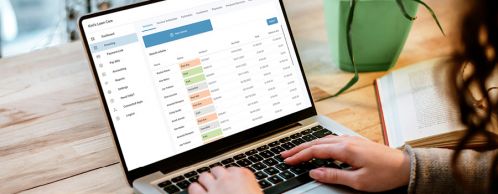
The Guide to SBA Loans
An SBA loan is a loan supported by the US Small Business Administration to allow banks to offer loans to its business customers with lower interest rates, lower down payments, longer terms, and more flexibility with their underwriting criteria.
Loan Programs
The SBA offers a variety of loan programs to best fit the borrower's needs. Programs include:
- 7a - Term loans that can be used for a large range of business needs including working capital, construction/renovation, debt refinances, business purchases/partner buyouts, real estate, and equipment purchases.
- 504 - Term loans used for real estate and equipment purchases or construction/renovation. The program allows for a lower interest rate than a 7a loan.
- 7a Express - A smaller loan with a maximum of $500,000 allowing for a quicker approval and funding process. This program can be used with revolving lines of credit and term loans.
- Disaster Assistance - The SBA also offers disaster assistance loans including the Economic Injury Disaster Loans, Paycheck Protection Program Loans, and more.
Timeline
Depending on the use of funds with your SBA loan, the timeline to closing an SBA loan can be in between 30 to 90 days. The best thing a borrower can do to speed up the process is to be engaged and provide items as requested by their lender in a timely fashion. The SBA does require a good amount of documentation for loan applications and the willingness and cooperation of the borrower to obtain those items can make the loan process seamless.
SBA Process
Applying for an SBA loan includes the following:
- The loan application - The borrower and lender work together to determine what the loan will be used for and what documentation is needed to begin underwriting. Borrowers can be proactive in collecting business tax returns, personal tax returns, year to date financials, detailed debt schedule, a comprehensive business plan, and projections prior to meeting with their lender.
- Underwriting/approval - Once the borrower has provided the lender with the documentation required, the lender will then underwrite the deal and go through the proper channels for internal approval and SBA approval.
- Report ordering and closing - When approval is obtained, the lender will order any required appraisals, environmentals, or title searches needed for each specific loan depending on the collateral and loan funds. Closing documents are prepared during this time and upon closing the borrower can start to use their SBA funds according to their SBA Authorization and disbursement sheet.
For more information, we encourage you to contact an SFB business banker. Our commercial lenders can answer your questions and help you get started with a business loan through the SBA. Call 888.254.0615 or email customerservice@sfbank.com to get started.



